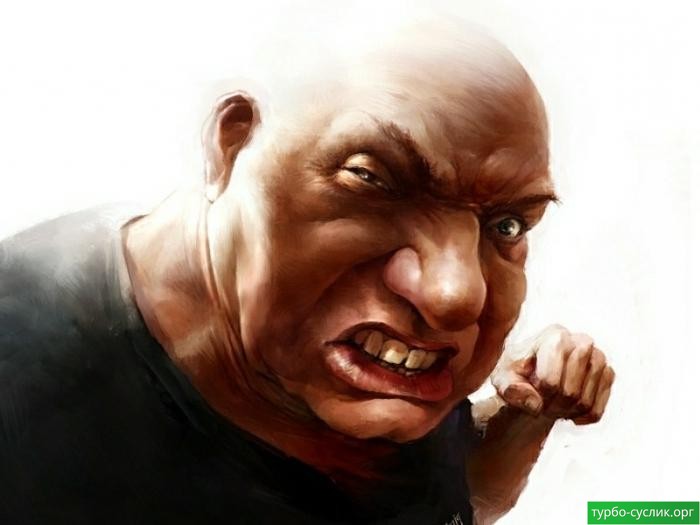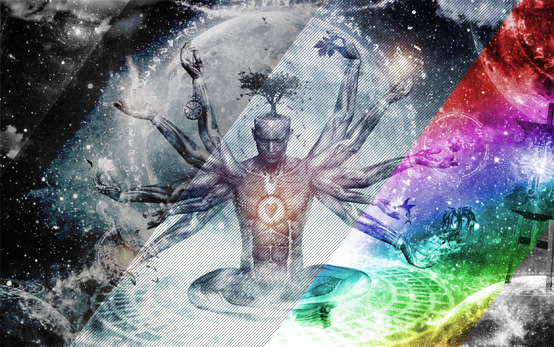Now we will take you on a short excursion in particular negative character traits, and let’s try to figure out what it means to have certain traits. First, let's define what character is.
Character is usually called a stable set of mental properties of a person.
Let's try to list the main negative character traits.
Pride is the belief that you are the cause of all events, both positive and negative, in your life.
Self-confidence- a trait characteristic of people who exaggerate their capabilities.
Lust for power is the desire to rule, which makes a person unbearable in communication and in his personal life.
Vanity is an obsessive desire to boast about one's achievements and successes.
Selfishness is an excessive focus solely on one’s own interests; disregard for the interests of other people.
Jealousy is a component negative character traits, which poisons the life not only of oneself, but also of other people.
Envy is a belittlement of one's abilities and at the same time dissatisfaction with the success of another person. It is interesting that the energy process in this case is aimed at taking away, taking away, attracting something successful from another person. That’s why it’s not advisable to brag, especially if you’re just starting to do something: as people say, you told it, someone was jealous and jinxed it. Communication with envious people is in itself destructive. It’s not for nothing that the expression “envy with black envy” exists.
Resentment is depression due to resentment towards someone from the environment. An offended person does not actively eliminate misunderstandings, does not resolve problematic situations, retreating into a passive form of response - resentment. Resentment also has a destructive effect on a person’s general condition.
Condemnation usually goes hand in hand with resentment, but it can also be a separate character trait. It manifests itself in the desire to extol oneself and criticize others, while absolutely not noticing one’s own shortcomings.
Anger, irritability, anger, hatred. They manifest themselves as a reaction to someone or something, accumulate and destroy the psyche of the person himself. If a person begins to indulge such traits, explaining this by the uncontrollability of his behavior, then he should know that sooner or later he may find himself a patient in a closed medical institution (mental hospital).
Weakness is a convenient manipulative position of a person who prefers that others take care of his problems.
Extravagance – negative quality character akin to vanity. The desire to be scattered on all sides, to increase attention and self-respect. It’s even worse if the wastefulness does not concern one’s own resources (parental money, for example).
Thrift, stinginess and greed- the same character trait, only expressed differently. Greed is the most extreme form of expression of stinginess, “getting stuck” on the possession of material things or money.
Guilt is a trait characteristic of people who have low self-esteem, and, on the contrary, a hypertrophied sense of duty.
Self-criticism can stem from a previous character trait (guilt), or perhaps from self-confidence. A person begins to be overly critical of himself, constantly returning to his mistakes or inability to “take the height” that he has determined for himself.
Cruelty is the underdevelopment of a person, the inability to adequately respond to current circumstances. Expressed in the desire to cause harm in order to relieve one’s own tension.
Vengefulness is an obsessive desire to “repay evil for evil.” Akin to pride and cruelty.
Gluttony is compensation for everyday joys by excessive consumption of food. Inability to live and enjoy life in its other manifestations.
The same applies to voluptuousness (lust). A person tries to increase his self-esteem and unwillingness to accept himself by increasing the number of sexual partners, which ultimately leads him to even greater disappointment in himself and in life as such.
The ancients called them “dragons” that live within us.
All that remains is to add - fight your “dragons”, do not give them a place to “register” in your soul, and - be happy!
Character is a set of personality traits. In other words, it is a combination of attitudes and habits. Character plays a determining role in a person's destiny. Every action causes an adequate reaction: a person reacts to situations and objects in an individual way, just as reality responds to the reaction personally. Wisdom, which has absorbed the experience of thousands of generations, states: by sowing a habit, you will reap character, and by burying a set of habits in the garden of life, you can count on a corresponding destiny.
There are hundreds of character traits (and a trait is the very reaction to a certain area of objective reality), each of them, like everything in this life, gravitates towards one of the poles - positive or negative. But if in many areas the existence of opposites is not only natural, but also good, then the presence in character negative aspects– very bad, although, unfortunately, it is the norm.
If the average person is asked to list negative traits, he is unlikely to name more than three or four dozen. However, just to mention them in list form, the article would have to be quadrupled in length. Despite the fact that without preparation it is difficult for us to remember even a tenth of negative character traits, we are familiar with most of them to varying degrees.
Four main groups
Character traits can be divided into four groups that determine a person's attitude:
- to yourself;
- to others;
- to work, business;
- to the world and material things in particular;
Surely you do not need explanations regarding each class, but it would not be amiss to give examples for each group of negative traits.
Attitude towards oneself - vanity
The name is eloquent - vain glory. A person suffering (and any negative habit or attitude is a disease) from vanity is inherent in the desire for recognition by other people, praise by others, and (in severe form) idolization. Vanity is one of the manifestations of pride, which in most religions is considered a mortal sin.
A person who revels in himself, dependent on the opinions of others, loses himself in a cloud of human reactions to him. Like other traits, vanity leads to other negative habits. Of course, this trait often pushes one to achieve achievements, but such a push is like a high jump without safety net. Among the positive features one can see its analogy - the desire for worthy goals, dissolution of oneself in deeds, and not in the opinions of people.
Attitude towards others - aggressiveness
Aggression cannot but provoke a response, therefore a person who is not distinguished by a peaceful character rarely arouses the sympathy of society. But if it were only a matter of sympathy, this trait could still be somehow justified. However, history so clearly illustrates the destructiveness of aggressiveness that there can be no compromise with respect to it. Unlike many other negative traits, there is no intermediary between this and its physical extension.
Attitude to work - laziness
In reality, such a phenomenon does not exist. There is a concept. Laziness is a whole complex of signs indicating a lack of love for work and goals. Laziness speaks of an energy decline. Just as darkness is the absence of light, and cold is the absence of warmth, so laziness is just the “immobility” of certain positive traits or the depletion of the corresponding mental resources that help make life a bright picture.
Whatever the reasons behind laziness, indulging in it leads to a waste of time and life. There are many ways to replace this negative trait with similar positive ones.
Attitude to material things – squandering
![]() A trait that, even in attractive financial conditions, rarely allows one to preserve “what has been acquired through back-breaking labor.” Thus, squandering destroys the fruits of labor, sometimes hard, often leaving a person with empty pockets, or even with debts, dragging him into the social abyss.
A trait that, even in attractive financial conditions, rarely allows one to preserve “what has been acquired through back-breaking labor.” Thus, squandering destroys the fruits of labor, sometimes hard, often leaving a person with empty pockets, or even with debts, dragging him into the social abyss.
Some object to classifying this trait as negative, appealing to the fact that there is only one life, and you need to live it to the maximum. Thrift, the opposite trait, is perceived by such people as the lot of “gray” individuals. Spenders, potential or actual, are unaware that reckless spending of money never leads to creation.
Negative character traits can be classified differently.
Other classification
Character traits can be divided into emotional, intellectual and strong-willed.
Emotional Traits
They determine a person’s attitude to objects, subjects and processes of reality. Narcissism, for example, is directed inward, ridicule is directed outward, towards the people around us. This class includes ardor, recklessness, vindictiveness... They all amaze emotional sphere, not allowing positive sentiments to take their place. As a result, a person affected by a large number of negative emotions cannot enjoy the life that he could if he allowed him to change the sign of his habits from minus to plus.
Intellectual traits
They can be defined as a complex of established properties and qualities of intelligence. This may include feeble-mindedness, narrow-mindedness, inattention... One of the tasks of man as a rational being is to conquer reality. It is impossible if the “tool” is not sharpened.
The inability to use a biological computer, the habit of not descending below the highest layers of reality, results in ruin for the bearer of negative intellectual traits and, often, harm to society. Since many decisions in society are made collectively, poor choices based on limitations lead to large and small unpleasant consequences.
Strong-willed traits
They are responsible for a person’s ability to control their activities and, as a result, life in many aspects. Constructive traits, subject to the predominance of positive ones in other areas, lead to creative changes. Negative ones destroy a person, even if in other groups, in general, everything is in order. Examples include cowardice, passivity, hypochondria...
The ability to direct energy and abilities in the right direction is a prerequisite for a successful, in any definition, life. On the contrary, volitional barriers force one to endlessly stumble or stagnate in one place.
How to change a minus to a plus
 Thousands of works have been written on how to develop character. The most important thing in this is not the quantity, but the fact that change is possible in principle. The simplest solution is to analyze the shortcomings, choose a model of the desired behavior and scrupulous “accounting”.
Thousands of works have been written on how to develop character. The most important thing in this is not the quantity, but the fact that change is possible in principle. The simplest solution is to analyze the shortcomings, choose a model of the desired behavior and scrupulous “accounting”.
In other words, you should carefully study (and this is an ongoing process) your weaknesses and choose an example to follow. A visual example is always better than an abstraction. Imitating the behavior of “models” (it is better to have several of them, since there are no ideals) should be accompanied by daily analysis and adjustment of efforts.
Well, if you are really sick of your problem and you are serious, you can really get rid of it, without psychologists and without even leaving home. In a matter of months. But this thing is not for whiners, so if you prefer to chew snot, you don’t need to download this technique, much less practice it. But if you are tired of the life of a victim, be sure to download it, and perhaps it will turn out that this is exactly what you have always been looking for.
Each person has his own character. And the characters of men and women are generally different. What positive human qualities are inherent in women and men? How do the same qualities manifest themselves in representatives of the strong and weak half of humanity?
Man, as a creature of nature, is represented as a special, multifaceted creature. He is able to think, analyze, feel, perform actions and various actions that bring benefit and harm to both himself and the world around him. 
His behavior is influenced by concepts such as morality and ethics. All this creates the character of homo sapiens, makes a person human.
What is character
A person’s character is a set of stable mental processes (properties) that influence his behavior and are manifested in his actions. Each of us has our own set of qualities that drive different actions.
Some character traits depend on the type nervous system, others are formed under the influence of the environment.
Each person has his own set of qualities, the list of which includes positive and negative traits. They are formed under the influence of surrounding people and life circumstances. 
Depending on the state of the environment, society and the degree of its influence on the individual, good and bad character traits may prevail in people.
Presence and superiority in human character certain qualities depend on many indicators: temperament, family, faith, geography of residence and, of course, gender.
A man and a woman are different not only in their external characteristics, but also in their behavior patterns, which are influenced by their internal motivation. The description of the “correct” qualities of both sexes shows the similarities and differences in their characters.
Positive human qualities
The division into negative and positive qualities of a person occurs under the influence of public assessment. People themselves determine: “what is good and what is bad.”
 What brings benefits, material and spiritual benefits, pleasure and joy, pleasant emotions, is considered good.
What brings benefits, material and spiritual benefits, pleasure and joy, pleasant emotions, is considered good.
A person whose character contains many positive qualities, is a role model. However, it is known that " bad people doesn't happen." This means that the division into “+” and “-” qualities is conditional. Everything depends on the system of relations between the individual and society.
In accordance with these indicators, 4 groups of character traits can be distinguished(since we are talking about positive qualities, only they will be indicated in each group and the list can be continued) :
- Attitude to society, to the team: sociability, collectivism, sensitivity, responsiveness, respect for people, kindness, goodwill.
- Attitude to activity: hard work, conscientiousness, diligence, discipline, responsibility, perseverance in achieving goals.
- Attitude towards yourself: self-esteem, modesty, pride, self-criticism, honesty.
- Attitude to things: thrift, accuracy, generosity, selflessness.
 Each person has certain traits that predominate, which makes him different from others. The personal merits of some people make others admire them and follow their example.
Each person has certain traits that predominate, which makes him different from others. The personal merits of some people make others admire them and follow their example.
Manifestation of character traits in men and women
| Women | Men |
| Sociability | |
|
|
| Responsiveness | |
| easily agree to requests for help and provide it to the best of their ability and ability | responsiveness is combined with rationalism: how to help with maximum benefit for the one receiving help. |
| Kindness | |
|
selective, well thought out, rational; |
| Caring for others | |
| is present in everyone without exception and finds manifestation in children, men, parents, and in housework | sincere empathy and care for relatives and strangers; manifested in earning money and providing for the family. |
| Determination | |
| often commit aimless actions, but always know what they want, but more on an intuitive level | The ability to clearly imagine and formulate goals, determine ways to achieve them and achieve implementation |
| Discipline | |
| are distinguished by good performance and discipline at any age | a quality characteristic of most adult men, but not boys |
| Hard work | |
| “bee”, “spinning like a squirrel in a wheel”, can simultaneously perform various tasks (especially around the house) | most are hardworking, but focused on solving one practical problem |
| Accuracy | |
| An important quality that everyone has | the majority are not careful in dressing or eating, as they consider this to be of secondary importance: “tanks are not afraid of dirt” |
| Thrift - Generosity | |
| spenders with money, but thrifty with things; generosity manifests itself in emotions and feelings | they know the value of the money they earn, so they try to be thrifty; generosity is balanced and rational. A generous man is always adored by women |
| Loyalty | |
| Typical for most loving ladies. In women, fidelity is correlated with devotion | men are polygamous, so being faithful to one woman is nonsense for some of them. However, many of them are monogamous |
Thus, the same character traits can manifest themselves differently in men and women. But among the set of qualities there are those that relate only to the weaker half and those that courageous people possess.
The main features of women
- Women's intuition. A woman’s feelings, her understanding and analysis pass through her heart, which reverently perceives the surroundings and evaluates them. She often avoids doing certain things without thinking about anything. Something just stops her, as if she is saving her for her children, her husband, her parents, for whom she is support and support.
- Patience. A woman is able to withstand any pain, physical and moral, moral humiliation and the whims of a man. IN family life women's patience and wisdom are especially important, as they save a marriage.

- Tenderness, softness, sensuality, love are mandatory feminine qualities. They are inherent in every representative of the fairer sex. They force men to do things and support them in difficult times.
- Empathy- a quality that does not allow a woman to pass by and not support someone in need of help, which leads to sincere compassion.
- Romance. Every woman who dreams of a “prince on a white horse” and “has her head in the clouds” with “rose-colored glasses” has this trait.
- Meekness, the ability to remain silent when there is “thunder and lightning” overhead, the ability to endure the anger and indignation of a man.
- Mysteriousness. Every woman must have a secret that cannot be comprehended by a man. If a woman is an “open book”, she loses interest from the stronger sex.

- Feminine weakness. The powerlessness of the fairer sex is manifested not in what she does, but in what she is capable of. Many women, having a strong character, keep it secret and do not show it to anyone. But at the right moment, perseverance and will manifest themselves, which come as a surprise to others.
The main features of men
- Masculinity, strength, courage, the ability to perform actions - these are purely masculine qualities that make him attractive in the eyes of a woman.
- Perseverance and determination, pragmatism and the ability to achieve one’s own are character traits of a strong-willed person capable of creating. It is a man’s creativity that allows him to create new cities and establish connections.
- Dedication- a quality that moves the stronger sex to exploits and achievements at the cost of their lives.

- Responsibility. Most men do not think about themselves, but about their children, wives, and loved ones. This makes them reliable and able to protect what is truly dear to them.
- Freedom- one of the traits that allows a man to realize himself in life and for which they stand to the last. For each of them, internal and external freedom is important, which gives him many opportunities.
- Bigness of thinking and independence in decision making make a man strong and self-confident, capable of making discoveries and making progress.
- A sharp mind and a special sense of humor– qualities that help others in good times and in difficult times.
Here are the basic qualities characteristic of representatives of different sexes, but there are much more differences.
Video: Exercises to develop good qualities
Each of us has both positive and negative qualities. And which of them are the worst?
So, the main bad qualities in a person
- Envy is one of the most bad qualities, which harms both the one who is envied and the envier himself. An envious person may splash out more negative emotions, and since they will occur frequently, they can poison the life of the envious person (it has been proven that they not only often lead to depression, but also provoke the development of certain diseases). And envy also prevents you from developing, striving for more and living normally.
- Arrogance. It is extremely difficult not only to interact with arrogant people, but also to simply communicate. They always consider themselves better than others and because of this they themselves suffer, since at some point even friends and family turn away from them.
- Hot temper. Hot-tempered people often interfere not only with others, but also with themselves, since the inability to restrain their emotions prevents them from performing simple duties and achieving goals.
- Arrogance. Arrogant people are extremely unpleasant, so it makes sense that no one likes them.
- Selfishness. All egoists are doomed to loneliness. It is very difficult to live with them, they are not intended for a normal family life, since they are not ready to make sacrifices and think only about themselves.
- Hypocrisy. This quality can help the hypocrites themselves, but everyone around them, when they find out the essence of a person, will certainly turn away from him.
- Pessimism. Pessimists are often real whiners and greatly irritate others. In addition, this quality also hinders those who have it, because if a person is initially set up for failure, then he literally attracts them and does not consider it necessary to make efforts to achieve his goals.
- Laziness. Lazy people cannot work normally in a team; their colleagues do not like them. And laziness is a big obstacle to achieving your plans. A lazy person can find a lot of excuses just to do nothing. Such people rarely become successful if they do not learn to fight their laziness.
- Aggression. It interferes with communication, building a family, and working. Aggression is often combined with another similar quality - rudeness. People with this trait are not respected in the team, and relatives and friends try to limit communication with them.
- Impudence. Yes, an arrogant person himself can achieve a lot thanks to this quality (it’s not for nothing that they say that “arrogance is the second happiness”). But everyone else has an extremely negative attitude towards impudent people.
- Infantilism is immaturity and a delay in the development of personality. Infantile people They behave like capricious and spoiled children, which greatly irritate those around them. They cannot make decisions, take responsibility and be responsible for their actions.
- Cruelty. Abusive people are capable of any action, even the worst. In childhood, they torture animals, then move on to their peers. If such a person has a family, he will show cruelty towards his spouse and children. And these children, who will often see manifestations of such a negative quality, can adopt it and also become cruel.
- Cowardice. Cowardly people evoke sympathy and sometimes contempt. This quality prevents you from making decisions, taking many actions, or trying something new.
- Stupidity. She ranks first in the rankings of the worst human qualities. WITH stupid people uninteresting to communicate, difficult to interact. At first, stupidity may seem innocent and even cute, but gradually it begins to irritate. Many people consider stupidity to be an innate trait, but in fact it can be eradicated if you develop, improve and constantly learn something new.
- Deceit. White lies can sometimes be useful, but if a person lies constantly, then he will eventually become entangled in his own lies and will certainly be exposed. And few are willing to forgive lies. As a result, they will simply stop believing the liar, which at some point may turn against him.
- Greed. It is a mortal sin and has always been punished. Nobody likes greedy people. This quality can interfere with working, living and enjoying life, because a greedy person always wants more, he is rarely satisfied with what he has.
- Frivolity. Frivolous people often get involved in adventures, rush from one extreme to another and never think about the consequences, and this can at some point hinder not only them, but also those around them. Frivolous people often let others down.
- Indifference sometimes hurts much more than rudeness or cruelty. And if a person is indifferent to family and friends, then they may feel unneeded and, in the end, turn away.
- Touchiness is not the worst quality, but it can be a big hindrance. Firstly, touchy people often have no friends because they get offended by trifles. Secondly, it is very difficult to communicate with touchy people, because they can be offended by anything.
- Irresponsibility. If a person is not ready to take responsibility for his actions, this means that he cannot be relied upon difficult situation. No one takes irresponsible people seriously, and no one turns to them for help.
- Egocentrism. A self-centered person considers himself the center of the world and does not accept any opinions other than his own. And this prevents you from developing, interacting with people and building normal relationships.
If you have one of these qualities, start working on yourself to eradicate it and make yourself better.
Your resume is a kind of price list. You list what you can offer the employer for his money. In order to “sell” your product, you need to understand what your potential boss is willing to pay for and what he considers a waste of money, work time and life.
When writing a resume, most often, people skillfully deal with factual questions, including dates, degrees, and positions. You don’t need a lot of intelligence here, especially if you have enough diplomas and experience to feel confident in this area. However, the question of positive and negative traits raises bewilderment. How to evaluate yourself: a) objectively; b) without seeming too self-confident; c) without blurting out about the quality that the employer just can’t stand?
In principle, a list of negative character traits is required only in the resume and at the interview itself. In other areas of life, we somehow make do with the fact that our “advantages” are already evident to others. Therefore, we will concentrate on the issue of employment.
FormalismIf you are not asked to list any weaknesses on your resume, don't do it. You should describe the qualities that clearly suit and contribute to your job responsibilities, and you will be asked about the disadvantages during the interview. Therefore, let’s consider the rules for describing negative character traits for an interview.
- If you say that you have no disadvantages, you will definitely seem arrogant and arrogant to the interviewer, and also not sincere;
- If you say that your shortcoming is workaholism, excessive dedication, love of overtime, the result will be about the same - you are disingenuous;
- If you talk about something real and small, your shortcomings should be “human”, but not spoil the quality of the work:
- coffee addiction;
- smoking;
- poor knowledge of some advanced computer programs (unless knowledge of them is a condition for obtaining a job);
- the habit of forgetting things at work, leaving papers on the table at the end of the working day, forgetting to turn off the computer, etc.
In any case, before proceeding to variations of the answer about negative or positive features character of a person, imagine yourself in the place of the desired boss and think about what set of qualities an ideal employee should have.
You need to clearly articulate what character traits are needed to do the job you are so desperate for.
So, do you meet this list of qualities? If you find something in common between yourself and the fantasy shortlist, feel free to write down exactly these common qualities in. If you don’t have them, offer the employer something more:
- when you have no work experience or skills, write that you are easy to learn;
- when you lack positive qualities, write that you dream of working in this company because...;
- when you want to hook your boss, write that you have the opportunity to work overtime.
Sometimes a person’s negative traits can, on the contrary, present him in a positive light to potential management. For example, it has been proven that some character flaws contribute to leadership in a team, and in general, it would be a good idea for those applying for leadership positions to have them.
Negative traits leader:

These qualities, in moderation, can help in a leadership position. For example, narcissistic narcissists usually have a great time at an interview, but if they cross the line, relations with the team will not be the most cordial. And a love of following rules will be an excellent disadvantage if you are applying for a position in the fields of law and accounting, but they are unlikely to be suitable for a more creative position.



